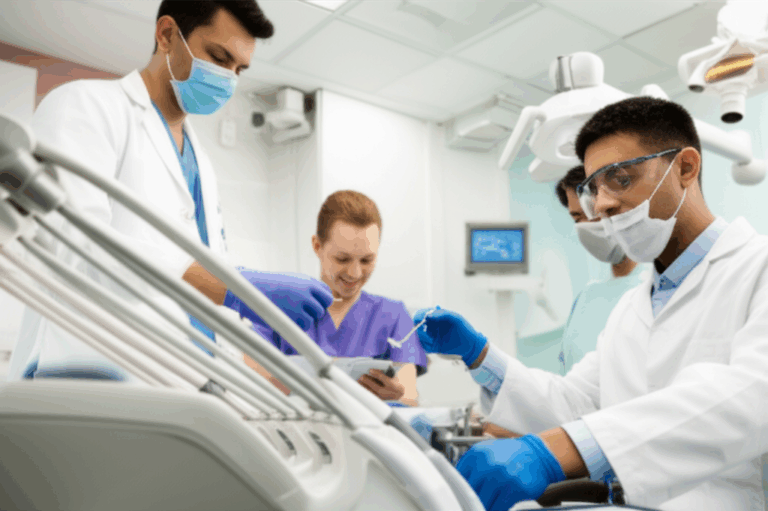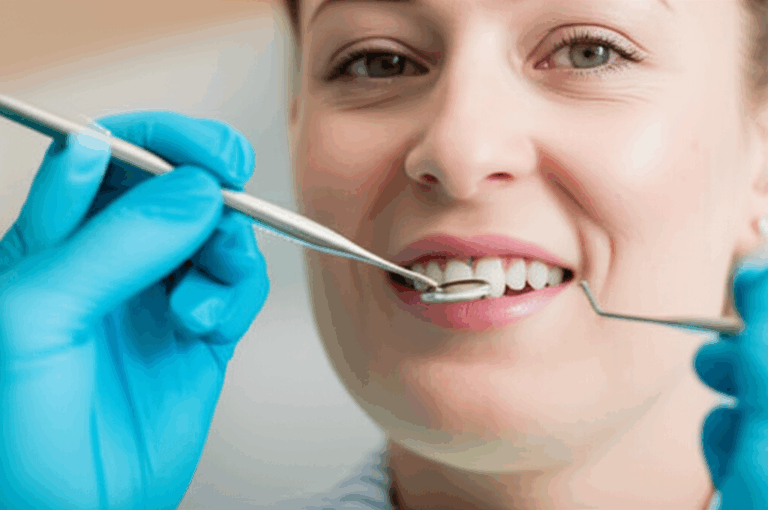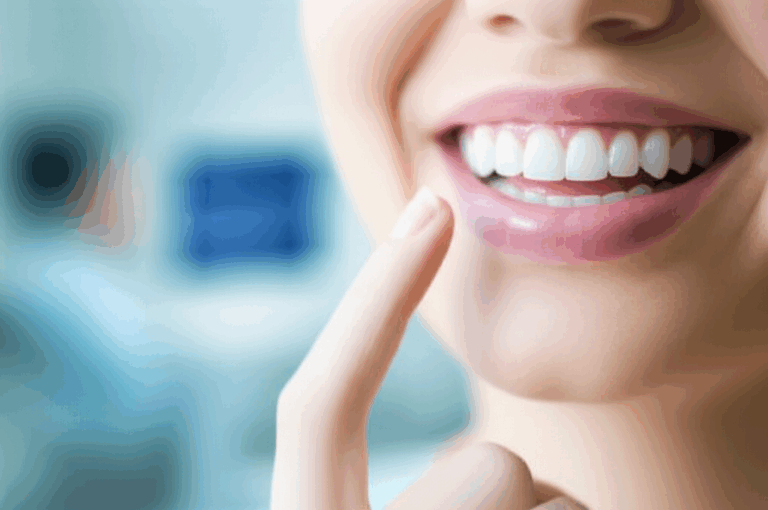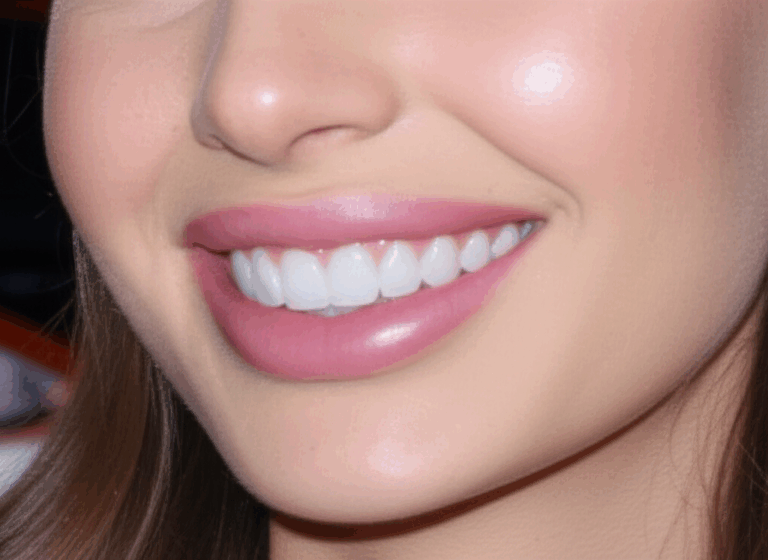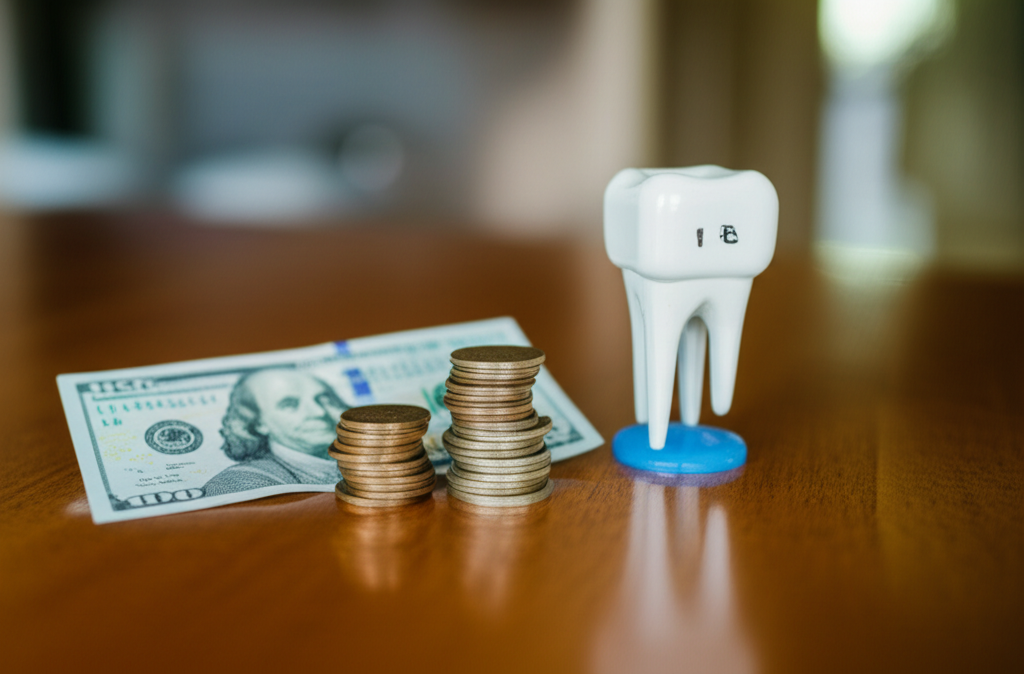
How to Afford Dentist Without Insurance: Finding Quality, Affordable Dental Care
Table of Contents
The Reality: Why Dental Care Without Insurance Feels Impossible (and It’s Not!)
I know the feeling when your tooth hurts and your bank account just says “nope.” I’ve been in your shoes. Once, a broken molar forced me to look up root canal prices at midnight. The numbers were crazy. Crowns can be $800 to $2,500 if you have no insurance. A dental implant could cost $3,000 to $6,000 for just one tooth. Even a “simple” filling might cost $150 to $450. I felt trapped.
There’s good news though. You have more choices than you think. I found smart ways, used community help, and asked for deals—and saved a lot. You can, too.
Money stops many people from getting care. Around 40% of adults in the U.S. skip the dentist because it’s too expensive. Over 70 million Americans don’t have dental insurance. ERs get millions of dental visits that could have been fixed at the dentist. But ERs can only help with pain or infections—they can’t fix the tooth. This just keeps the cycle going and it costs even more in the end.
Your mouth matters for more than just looking good. Bad teeth and gums can lead to heart problems, diabetes, and issues in pregnancy. I stopped acting like cleanings were just “nice to have.” I started thinking of my teeth like my car’s engine—taking care of them stops big trouble and keeps costs down.
What really helped me? I stopped asking, “Can I afford the dentist?” I started asking, “How can I make dental care affordable for me?” That little change made all the difference.
Immediate Needs vs. Long-Term Fixes: Putting Your Dental Health First
Emergency Dental Care Without Insurance: What I Do First
When tooth pain hits out of nowhere, you need a plan. Here’s my quick list:
- Call different offices early in the day. Ask if they have emergency spots. Lots save time for urgent patients.
- Try community dental clinics or urgent dental care centers. Some let you walk in if you’re in bad pain.
- Ask for a “problem-focused exam.” This usually means just an X-ray and checking what’s wrong—so it’s cheaper.
- Use sliding scale clinics or Federally Qualified Health Centers (FQHCs). They set prices based on what you make. HRSA.gov will help you find one.
- Only go to the ER for pain and swelling that spreads or feels really serious. They stop infection or big swellings—but usually can’t fix teeth.
- Manage pain with over-the-counter medicines for a short time. Ask a pharmacist if you take other medicine. Avoid TikTok tricks that can burn or make things worse.
If you need an emergency extraction or root canal, you still have options. Compare prices at different offices. Ask for a cash price. See if the dentist offers payment plans for emergencies. Try dental school clinics—sometimes you’ll wait more, but you can save a lot.
Routine and Preventative Care: Why Skipping It Ends Up Worse
I found out the hard way—ignoring cleanings and checkups led to a bigger, more expensive problem. What started as a small cavity grew, and I needed a crown. That bill was rough.
Getting your teeth cleaned and checked saves cash in the long run. A filling is way cheaper than a root canal or new crown. Now, I treat dental cleanings like oil changes for my car. Good daily habits and regular care can stop the expensive stuff before it starts. The cheapest cavity is the one you never get!
Top 7 Proven Ways to Get Cheaper Dental Care Without Insurance
1. Dental Schools: Good Care, Cheaper Prices
What they do:
Dental school clinics use student dentists, but teachers keep an eye on everything. You get detailed checkups. They have modern equipment.
Pros:
- Lower prices—sometimes 30% to 50% less than regular offices.
- Most dental work, from fillings to crowns.
- Quality stays high because teachers double-check things.
Cons:
- Visits take longer since students work slow and careful.
- Only in bigger cities usually.
How I find them:
I search for “dental schools near me” or use the American Dental Education Association list. Well-known places include NYU College of Dentistry and UCLA’s dental school. Hygienist schools also offer super cheap cleanings and X-rays.
For harder stuff, like root canals or braces, I asked about programs in that school’s specialty departments. They often save you the most.
2. Community Dental Clinics and Federally Qualified Health Centers (FQHCs)
What they do:
FQHCs and community clinics help people who don’t have much money or any insurance. They take what you make into account and set the price. Services can cover cleanings, fillings, and more.
Pros:
- Sliding scale prices are better than any coupon.
- Sometimes you can get medical and dental care at the same place.
- They take Medicaid and CHIP for kids.
Cons:
- There’s often a waitlist, so call early.
- Some places only do basic care.
How I find them:
I search with the HRSA health center tool. Also, ask the local health department or United Way for free or cheap clinics. Sometimes, churches or charities host free dental days.
Tip: Call right after a holiday or early in the morning—people cancel, and spots open up!
3. Dental Discount Plans (Dental Savings Plans)
What they do:
These are NOT insurance but a membership. You pay every year, and you get a lower cost at certain dentists. The cut can be 10% to 60%, depending on what you need. Some tell you the price ahead of time.
Pros:
- No deductibles or yearly max.
- Discount starts right away.
- Lots of dentists are part of these plans.
Cons:
- Only works if you pick a dentist in their network.
- Yearly fee—read the small print first!
How I shop:
I check DentalPlans.com and plans from Aetna or Cigna. Make sure your local dentist takes the plan. Read the price list. Check with the office before you join.
How much I saved:
- Cleaning went from $150 to $90.
- A filling dropped 20–40% in price.
- Crowns were much less, saving me hundreds.
Tip: Use online cost checks and call your dentist to double-check prices before you sign up.
4. Payment Plans and Financing Through Your Dentist
What they do:
Lots of dentists let you pay over time in small chunks. Some use CareCredit for big jobs—a credit card for health stuff. They sometimes have zero-interest deals if you pay in time.
Pros:
- Start work now and pay later.
- Break up a big bill so it’s less painful.
Cons:
- Interest starts if you don’t pay fast.
- Some check your credit.
How I do it:
Ask for an itemized plan. Ask about in-house plans or a cash price if you pay it all. Ask about CareCredit or if they have a special plan for those without insurance. Sometimes, dental offices have their own membership plan with 2 cleanings, X-rays, and discounts for a yearly fee.
I got 10% off by paying cash for a crown. Sometimes, paying up-front is best.
5. Government Programs and Help (Medicaid, CHIP, VA Benefits)
What they do:
- Medicaid and CHIP fully cover kids in every state.
- Medicaid coverage for adults changes by state—may be full, partial, or none.
- Veterans might get VA Dental if certain rules fit.
Pros:
- Great for kids and pregnant people.
- Covers checkups and basic fixes, sometimes more.
Cons:
- Adult benefits are hit or miss, depending on your state.
- Often no coverage for stuff like implants.
How I figure it out:
I check my state’s Medicaid website for dental info. I call my state dental group if I’m confused. Ask FQHCs—they know local rules best. For students, check campus health plans. For seniors, use the National Council on Aging help line.
6. Charitable Groups and Dental Help Programs
What they do:
Special help for people who are disabled, really sick, older, or just having a hard time.
Programs I’ve used or heard of:
- Donated Dental Services for long-term health, seniors, or those too unwell to work.
- Give Kids A Smile—kids get free care on certain days.
- Missions of Mercy—huge events with lots of free care in a weekend.
- Local United Way for info about community help.
Pros:
- Free or super cheap care if you qualify.
Cons:
- You need to prove eligibility.
- Long waitlists sometimes.
How I do it:
I gather my papers—proof of income, health info. Apply early. Call around for info if you don’t hear back. Sometimes, food banks or churches have resource lists.
7. Good Habits: The Best Way to Save Money
What it’s about:
Doing the basics right saves the most money. I brush two times a day with fluoride toothpaste, floss before bed, watch sugar, and use clinics or schools for cheaper cleanings.
Pros:
- Skips big costs later for gum or deep cleaning.
- Helps avoid emergencies, broken teeth, and more.
Cons:
- You have to stick with it—you can’t take months off.
Tips:
- Hygienist schools offer lower-priced cleanings and X-rays.
- Teach kids to brush with fun apps and games.
- Ask about sealants and fluoride for extra protection.
- If you grind teeth at night, use a mouthguard—replacing cracked teeth is much worse.
Beyond the Basics: Creative Tricks That Helped
Dental Tourism
Once, I checked if I could get a dental implant in another country. The price was way cheaper, but I added up the flights, hotel, missed work, and what if something went wrong? Sometimes people save a lot. But I chose to stay local for big procedures.
Pros:
- Big savings on some things (crowns, implants, veneers).
Cons:
- Travel costs and stress.
- Not the same quality everywhere.
- Harder to get help if there are problems back home.
If you try it, ask for the dentist’s paperwork, a detailed plan, and what happens if there’s a problem later.
Deal With Your Dentist
I used to hate asking for a deal. Now, I always ask for a cash price. I ask if I get a discount for doing a few fillings at once, or if there are cheaper choices for fillings or crowns. I show quotes from other places and am honest.
Dentists run businesses, so they have expenses. But most will try to help if you talk to them upfront and directly.
Use HSAs and FSAs
If you have a Health Savings Account (HSA) or Flexible Spending Account (FSA), you pay for dental out of your paycheck before taxes. I use mine for bigger work and plan treatments around the FSA year.
Barter or Volunteer Work
Rare but possible. Sometimes, local groups let you trade work for services. Some clinics let you reduce your bill by volunteering at events. I ask politely and never expect a yes, but sometimes it helps.
Membership Dentistry and Direct Primary Care Dental
Some dentists offer their own membership plan if you pay per month or year. It covers checkups, X-rays, cleanings, and cheaper prices for other work. It isn’t insurance, but it can save a lot if you need regular care.
Real-World Cost Examples and How I Lowered Them
Here’s how I handled things—your prices might be a bit different, but the steps are the same.
Scenario 1: Need a Filling, No Insurance
- Normal price: $150 to $450.
- My plan: Called local offices and a dental school. Tested out a discount plan (cut price by about 25%). Paid with FSA money. Asked for a pay-in-full deal and got 10% off. Stacked my savings.
Scenario 2: Cracked Tooth Needed a Crown
- Normal price: $800 to $2,500.
- My plan: Asked which types they use and what labs make them. I wanted it to last. I used CareCredit with 12 months no interest and finished payments before the interest started. I asked for a bundled price since I needed cleaning, too. I asked what the lab uses and why that matters. I’m careful about where crowns come from—quality labs like crown and bridge lab make a huge difference.
Scenario 3: Missing Back Teeth, Tight Budget
- Choices: Partial dentures, bridges, or dental implants ($3,000 to $6,000).
- My plan: Asked for phases—got a removable partial (much cheaper) through a well-known removable denture lab. Saved HSA money for a dental implant for later. Kept my mouth clean to keep my options open.
A note on labs and materials: Good labs make crowns, bridges, and dentures that last longer and fit better. Cheap isn’t always best. Ask your dentist who makes the crown—you want it to last.
Action Steps: How to Find Cheaper Dental Care Right Now
FAQs I Hear All the Time
What if I get a bad toothache at night?
Try to get an emergency dentist first. Only go to the ER if you have a lot of swelling, fever, or infection that’s spreading. They can stop the pain but can’t fix teeth. Call a clinic early in the morning.
Do dental discount plans really help?
They aren’t insurance, but many times save 10% to 60% if you use their dentist. Always double-check their fee list with the dental office.
Can my kid get braces if I have no insurance?
Try dental school orthodontic programs, FQHCs, or look into Medicaid/CHIP for kids. Community groups sometimes help with special cases.
Are there free dental clinics near me?
Many areas have free dental days. Check NAFC, United Way, your state dental association, churches, or community centers. “Give Kids A Smile” is for kids.
Should I get mail order aligners?
Research carefully. SmileDirectClub closed in 2023. It’s safer to go to an orthodontist or school clinic where someone checks your teeth in person.
How do seniors find help?
Look at the National Council on Aging, local senior centers, or some state programs for dental care. Donated Dental Services also covers some older or sick people.
What do veterans need to know?
Check the VA portal. You might get free care if you meet certain rules. Many community clinics also help veterans.
How can I make crowns or veneers cheaper?
Ask about materials, price lists, and payment options. Compare different estimates. Ask about the dental lab quality—it really matters if you want things to last.
Affordable Dental Choices: What I Tried
I made this running list so I wouldn’t miss any ideas—you can do the same and circle what fits.
- Cheap checkups at FQHCs and Community Clinics with sliding prices.
- Dental schools with teachers watching (great for hard cases).
- Dental discount plans and membership plans—compared “savings plans vs insurance.”
- Payment plans at dental offices, including CareCredit and in-house choices.
- Programs like Medicaid/CHIP for kids and VA Dental for veterans.
- Nonprofit groups: Donated Dental Services, Give Kids A Smile, Missions of Mercy, NAFC.
- Public health department clinics and special state programs.
- Mobile dental clinics in rural and city areas.
- Help for special groups: veterans, seniors, students, foster kids, the homeless, migrants, and refugees.
- Special care needs: gum care, root canals, wisdom teeth, surgery, orthodontics, dental schools for these.
- Restorations: price of crowns, bridges, veneers, bonding, implant financing, cheaper dentures.
- Routine stuff: cleanings, X-rays, full checkups.
- Emergencies: urgent care, extractions, broken teeth, finding quick and cheap fixes.
- Money hacks: HSAs, FSAs, community help, price check tools, membership plans.
- Prevention: habit-building, cheaper home products, managing pain while you wait.
Trusted info came from:
- American Dental Association and state groups for directories.
- HRSA for FQHCs, Community Health Centers.
- Dental Lifeline and ADA Foundation for charity help.
- Kids’ and seniors’ dental groups.
- United Way and Health Departments for local programs.
My Tricks for Getting Affordable Dental Care
- Pick a dentist you trust. Start with a dentist, ask about specialists if you need them.
- Ask for a detailed, step-by-step plan with choices for now and later. Choose what fits your health and cash.
- Compare what the office/lab uses and what it costs. Good work lasts, cheap work might not.
- Take things one step at a time—do what matters now, save for the next step.
- Don’t chase only the lowest price if it’s low quality. Focus on work that lasts.
A Note About Big, Fancy, or Cosmetic Work
If you need lots of crowns or a full-mouth fix, you want a strong dental lab. Good labs use tough stuff (like zirconia and e.max) and make things look nice and last. If you ever want veneers, learn about care and options first. If it’s for a front tooth, ask for a preview. Read more about [veneers] before you decide so you know what you’re getting.
What Helped Me Decide Where to Go
- Around 22% of Americans had no dental insurance in 2021 (over 70 million people).
- About 40% of adults said cost stopped them from getting dental care. For people 65 or older, it was 28%.
- ERs handle over 2 million dental problems a year—but can’t really fix teeth.
- HRSA-funded clinics gave millions dental care—so I used these for cheaper options.
- Dental schools save 30% to 50%. You swap time for savings and teachers check the work.
I trust facts from the ADA, CDC, HRSA, AHRQ, and others. I bring these numbers to the dental office when I need a phased plan.
Tips That Saved Me Time and Money
- Ask for a “limited exam” if you just want a diagnosis—it’s cheaper.
- Book cleanings and X-rays at a dental or hygiene school. Some let you take the X-rays with you.
- Try a dental discount card for a filling or extraction—quit next year if you don’t use it much.
- Stack savings: discount plan, cash price, HSA money—it adds up!
- Keep copies of all your dental plans, receipts, and X-rays. You might need them for charity programs or when you see someone new.
- Shop for big work early. Planning ahead always costs less than a last-minute choice.
Don’t Let Cost Stop You: Dental Health Matters
I used to just wait and hope the pain would go away—until I needed a root canal. That made everything worse. You don’t have to wait or suffer. Call once. Price out a cleaning. See if a discount plan or payment plan helps. Take that first step—it always leads to more progress.
Conclusion: Take Charge of Your Dental Health Without Insurance
Dental work is pricey, but you still have real ways to save. Dental schools offer good care at lower prices. FQHCs charge based on income. Discount plans reduce fees. Payment plans let you pay over time. Medicaid or CHIP helps kids. VA covers some veterans. Charities help many. Prevention saves the very most.
I built a mix of these tricks and used them bit by bit. I compared. I bargained. I made sure to avoid emergencies by staying ahead. You can, too. If you face expensive work—ask about the dental lab and materials. If you need to split treatment over time, that’s totally okay. If you want steady, pick a dentist you trust.
Pro tip: Save this steps list on your phone. When tooth trouble comes, don’t panic—just start calling. Ask questions. Get the care you need, at a cost you can handle.
Helpful links I keep ready:
- HRSA Health Center Finder (for local FQHCs/clinics)
- National Association of Free & Charitable Clinics (to find free care)
- State dental associations for programs and free dental days
- United Way (find local community resources)
- Dental school clinic finder pages
And if your dental plan has lab-made work, always ask about the lab. Quality counts! For crowns and bridges I ask about the crown and bridge lab. For dentures I ask about the removable denture lab. For big stuff like implants, I check general info about a dental implant. For everything else, I start with a regular dentist who’ll explain the costs.
Stay active. Keep asking questions. You can make dental care work without insurance—just use all the options available!

